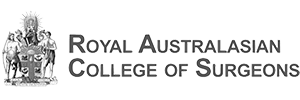Initial Consultation
Our aim is to provide you with all the information that you would need to make informed decisions about managing your tumour.
What to Expect
During your initial consultation your doctor will:
- Request detailed information about your symptoms.
- Take a medical history of your current and past ailments.
- Consider any radiology, pathology or other tests results that may be available.
- Perform a thorough physical and/or other examinations.
- Discuss what are the possible next steps
What to Bring
On your first visit please remember to bring the following:
Medical Information
- Referral Letter (GP, family physician or another doctor)
- X Rays, MRI or CT scans
- Medical and Family History
- Copies of Pathology Reports
- Any other relevant information
- List of current medications
Personal Information
- Medicare card, DVA card, Pension card
- Private Hospital Insurance details
- Driver’s license or valid ID
- If work related - Employer’s Letter
Ask Questions
It’s not uncommon to have questions or doubts, which we will encourage you to clarify before you leave the consultation.
While certain diagnostic tests such as blood tests or imaging tests may be ordered to confirm your diagnosis. We will take the time to explain the options for treatment of your condition.
Some Questions to ask your Doctor
One of the most important things to tell your doctor, apart from your medical history, is any specific concerns or fears you may have regarding your condition or treatment. It is normal to be nervous about your health, but it is hard for your doctor to allay your fears or reassure you that you should keep your thoughts to yourself.
What are Non-Surgery Options?
When surgery is recommended, it is often the best treatment, based on the evidence available. When considering surgery, both you and your doctor will balance the risk of surgery against the risk of not having surgery.
There may be other treatment pathways or less invasive approaches that could be considered. Depending on your personal circumstances alternative options maybe preferred.
Related Questions to Ask
- What are the chances that I will benefit and how long is the benefit likely to last?
- What are the most common risks, and how long do their effects last?
- What are the most serious risks, even if they are not very common?
- What if I want a second opinion?
Do not be afraid to ask for a second opinion. No doctor should ever be worried or offended if you want a second opinion. In fact, any doctor should be willing to help you find the best doctor to suit your needs.
What is the Treatment Cost?
In public hospitals, there should be no charge for your procedure. At private hospitals, even with insurance coverage (which may be variable), people often must pay some costs themselves when they have surgery or a procedure.



